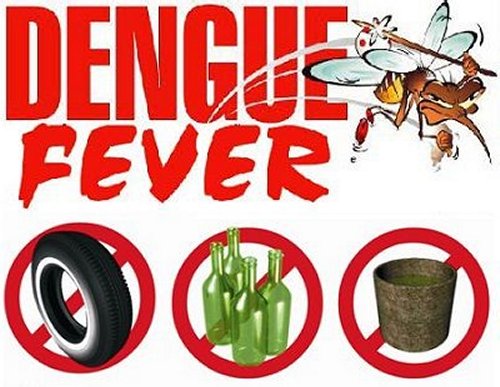Dengue Cases Grow Six-Fold This Year
The number of dengue fever cases recorded in Vientiane so far this year is already six times the figure registered for the same period last year. The comparison was made between cases recorded from the first week of January to the end of April.
Head of the Epidemiology Division at the Vientiane Health Department, Dr Chanthalay Sayavong, said this was a strong signal that medical staff and people from all walks of life must take steps to guard against dengue.
So far, this year more than 3,000 people have been infected with the virus nationwide, resulting in 11 deaths. Of this figure, 634 cases occurred in Vientiane, where six people have died.
“I think the infection rate will be higher than it was in 2010 when all hospitals in Vientiane were overwhelmed, if we don’t immediately put measures in place to fight dengue,” Dr Chanthalay said.
In 2010, 4,779 people were infected with the dengue virus in Vientiane alone, leading to five deaths. Nationwide, more than 20,000 people were infected with dengue fever, resulting in more than 40 fatalities.
The Vientiane Health Department says it cannot fight the dengue battle on its own and requires the assistance of all members of the public. The department is calling on the private sector to participate in this campaign by asking companies to put up billboards about ways to prevent dengue fever and to distribute stickers explaining how people can get rid of mosquito larvae. They want everyone to be aware of the importance of dest roying mosquito breeding sources.
In addition, the department is using travelling pick-up trucks and cars to broadcast the dangers of dengue and prevention methods in public places such as markets and bus stations.
“We hope that by taking these measures at an early stage we will be able to keep dengue at bay,” said Dr Chanthalaly, adding that a continuous publicity campaign is essential to keep the virus under control.
People in every community are urged to join together on a weekly basis to clear out potential mosquito breeding areas, including pools of water in containers, puddles or ditches, and to thin out thick bushes.
According to the World Health Organisation, dengue is one of the fastest emerging infections in the world as it is currently the most rapidly spreading viral disease known. The number of cases in the Western Pacific Region has more than doubled over the past 10 years.
In particular, the Asia Pacific bears 75 percent of the current global dengue disease burden and accounts for more than 70 percent of the estimated 2.5 billion people at risk globally. The disease has now expanded to new geographical areas that were previously unaffected and this trend is predicted to continue.
There is no specific treatment or vaccine available to prevent death. For this reason, the growth of dengue is expected to have a large impact on public health, economies and society.
published with the permission of Vientiane Times

